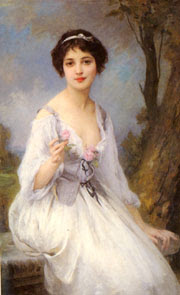
pulp - n - A magazine or book printed on rough, low-quality paper made of wood pulp or rags, and usually containing sensational and lurid stories, articles, etc.
Before there was television there were pulp magazines. A newstand of the 1930s was a wondrous sight: brightly-colored, action packed, sometimes sexy covers on magazines featuring an incredible variety of stories - mystery, detective, weird, science fiction, war, air war, sports, romance, humor, jungle adventures, Oriental adventures, spicy, and a number of series characters, including the Shadow, Doc Savage, the Spider, G8 and His Battle Aces, and many others. (Caveat: The covers could be sexy, but they promised a lot more than the fiction inside delivered.)
The typical pulp magazine paid a cent a word, and with hundreds of pulps at any given time there was a constant demand for fiction. It was a great time for a young writer to be alive. Alfred Bester said that the pulps gave the novice a place to learn his craft while getting the bad writing out of his system. Few such markets exist today.
The cent a word rate was pretty standard, but some of the pulpier pulps paid, as the old joke had it, "a quarter cent a word, payable on lawsuit." Still, at a cent a word, a 20,000 word story (about 35 printed pages or so) paid 200.00. 200 bucks went a long way in the great days of the pulps (maybe from about 1920 to 1955). L Ron Hubbard and Arthur Burkes routinely cranked out 10,000 words a day.
Naturally a lot of pulp fiction makes for painful reading today, but then much modern TV makes for painful viewing. Audiences then were no more sophisticated than audiences today. And some high-powered authors got their start in the pulps: Raymond Chandler, Tennessee Williams, Dashiel Hammett, Philip Wylie, Robert A Heinlein, Isaac Asimov, Erle Stanley Gardner, and many others.
So much for the pulps.
Today's picture, "Exquisite" number three, is The Pink Rose by Charles Amable Lenoir. I hate to indulge in art-babble, but since Nat's not paying attention I will point out the obvious (to me) symbolism: innocence, virginity, pristine possibility. The pink rose. Beautiful.
No comments:
Post a Comment